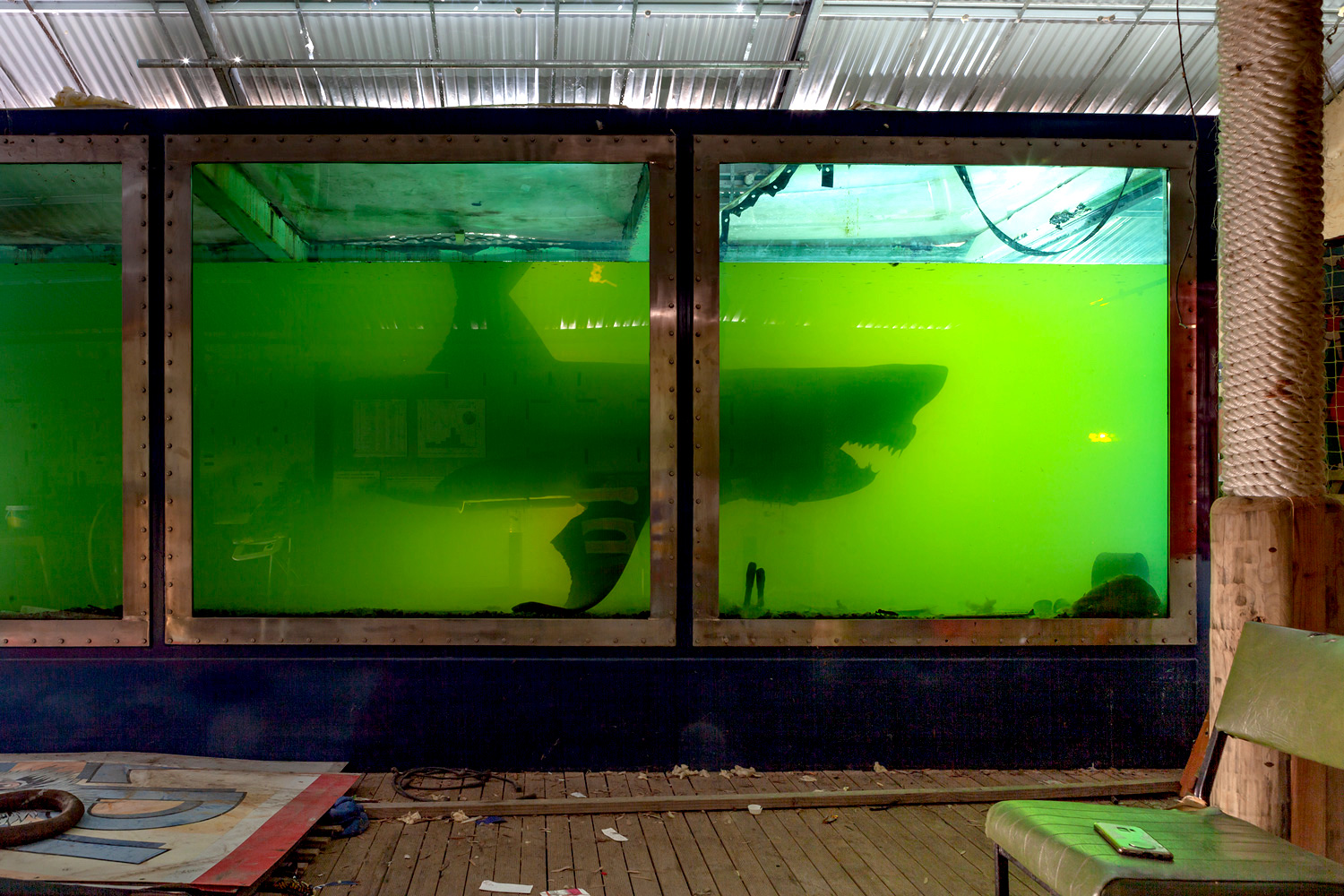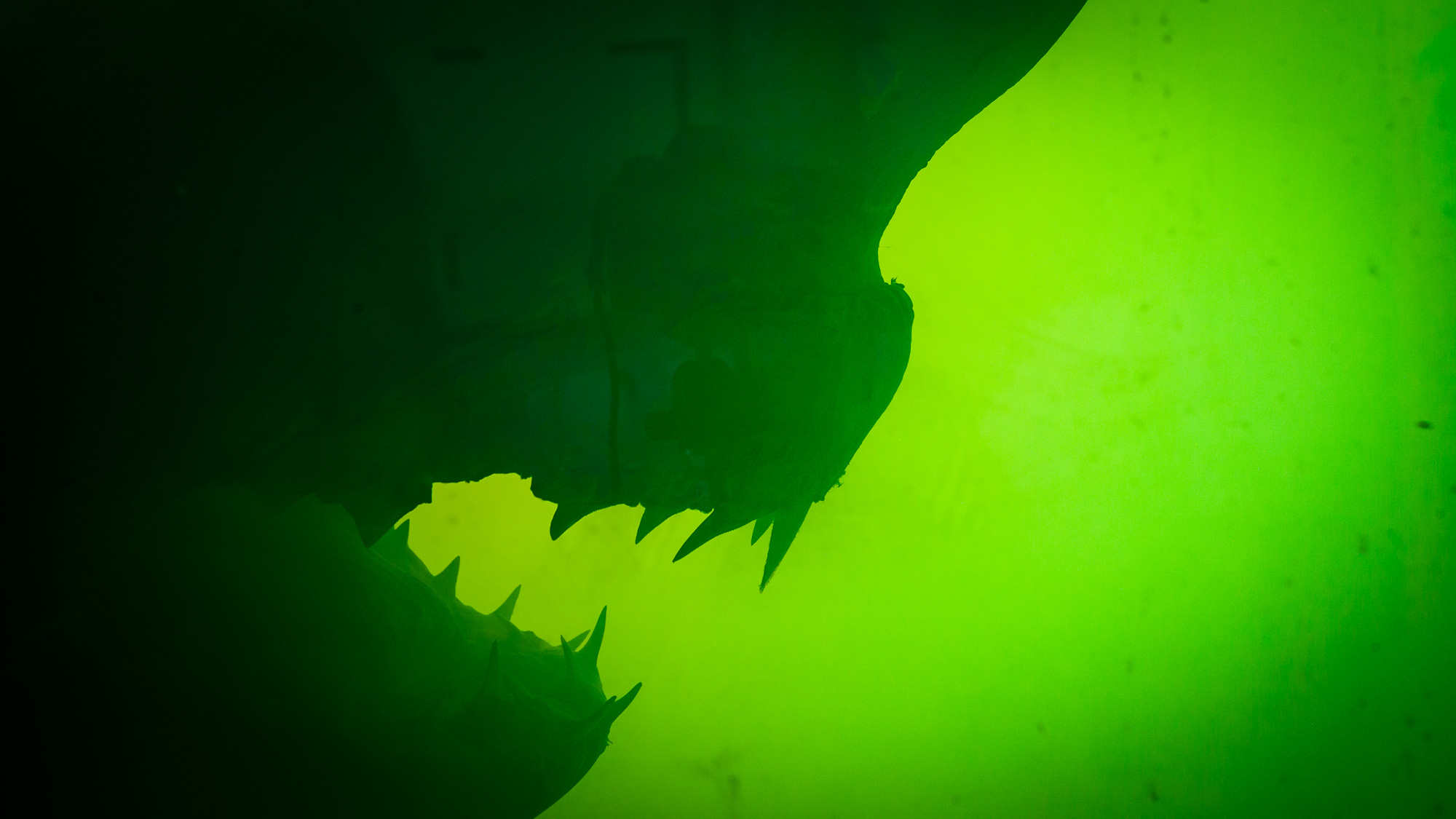This article originally appeared on VICE Australia.
A friend recently told me something intriguing over a beer. According to them, I could see a four-meter [13-foot] great white shark floating in a tank of formaldehyde in an abandoned wildlife park, within an hour and a half’s drive. They then gave me the address.
It took me a few weeks to make the journey, but just before I left, a video surfaced on my feed from someone who’d seen it. YouTube promoted the video as “recommended,” and the footage had accrued millions of hits in a matter of days, which had obviously been a disaster for the shark.
In the clip, I could see someone had pried the roof off the shark’s tank, allowing some idiot to throw in a broken television. And a network of cracks had appeared on the tank’s glass where someone had gone at it with a hammer or some other blunt object. To varying degrees, I figure everyone has a killjoy dickhead somewhere inside them, but some hold themselves back better than others. And apparently, the video’s audience size had brought out the fuckwits—as well as some seriously dangerous formaldehyde fumes.
Forewarned and forearmed, my friend and I bought some painfully expensive gas-vapor respirators and some less expensive snacks, and set off.

The shark’s shed was the first thing we found—all of a two-minute walk from the property gate. We pulled open the roller door and there it was: a huge dark tank, surrounded by clutter. Since the tank had been damaged, its formaldehyde solution had turned a murky green so it was initially hard to make out the shark. But we let our eyes adjust and its shape emerged, silhouetted by light pouring through a hole in the roof. The animal was large and strange and perfectly complimented by the sound of rustling wind. A tag on the wall read “mysterious shark.”
Related:
Melbourne’s shark was never intended to become art. Initially caught in 1998 off the South Australian coast, the great white was originally preserved for display at a Victorian ecotourism center devoted to fur seals. Given that fur seals make up a significant portion of a great white’s diet, you can see the synergy.

Things fell apart in the early 2000s when the center committed to expanding its underwater display failed to follow through on its deal with the state government, leaving the shark and its tank without a suitable home. Its then-owner temporarily rehoused the shark in a small wildlife park that was devoted to the preservation of the Giant Gippsland Earthworm.
What happened next was that the earthworm park was sold in 2003, along with the shark, which was supposed to be only “temporarily” rehoused. The shark’s original owner suggested that it should be donated to the Melbourne Museum, but as it was now the legal property of the earthworm park’s new management, that failed to eventuate.
Jump forward a few years, and the state government expanded the park’s adjacent highway, and so the shark’s home went into rapid decline. A series of owners and operators displayed varying levels of enthusiasm for the site’s maintenance or paperwork, which culminated in the closure of the entire venue for displaying wildlife without a permit in 2012.

Curiously, the shark—alongside the rest of the park’s non-living attractions—were left behind. Apparently, interest from the curators at the Melbourne Museum also cooled, as the shark began to deteriorate in its forgotten tank. So then, for the next seven years, unless you were intimately connected to Melbourne’s urban exploration scene, you’d have never known that a discount Damien Hirst was sitting unseen within an easy drive of Melbourne’s city center.
Now, in a brief few months, I guess that’s changed, with the previously undisturbed shark now becoming internet-famous. That said, given that a series of vandals have been doing increasingly irreparable damage almost every week, it’s only a matter of time before this curious specimen slips wholly out of existence.
Sign up for our newsletter to get the best of VICE delivered to your inbox daily.
from VICE http://bit.ly/2TI1r6P
via cheap web hosting
No comments:
Post a Comment